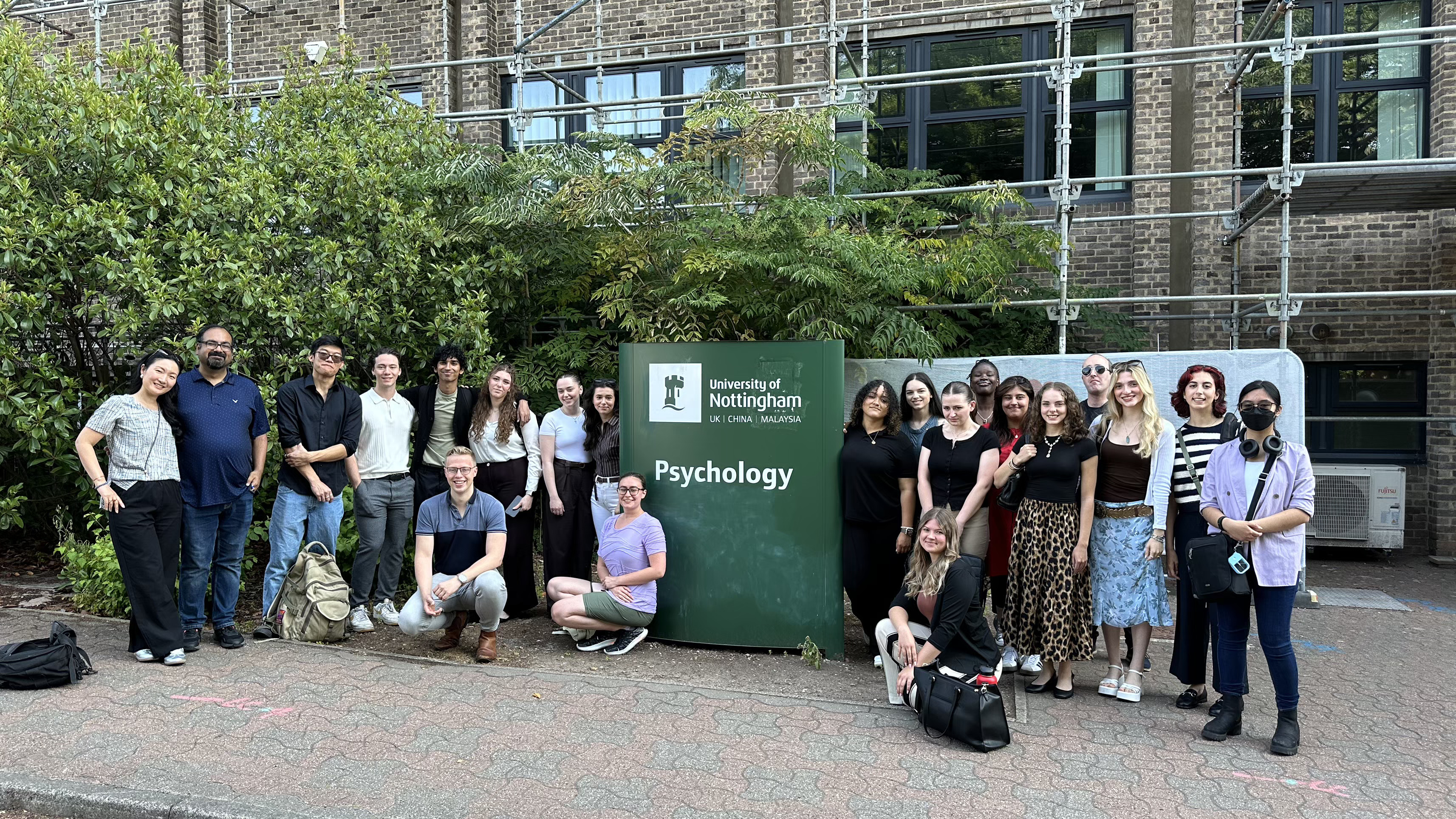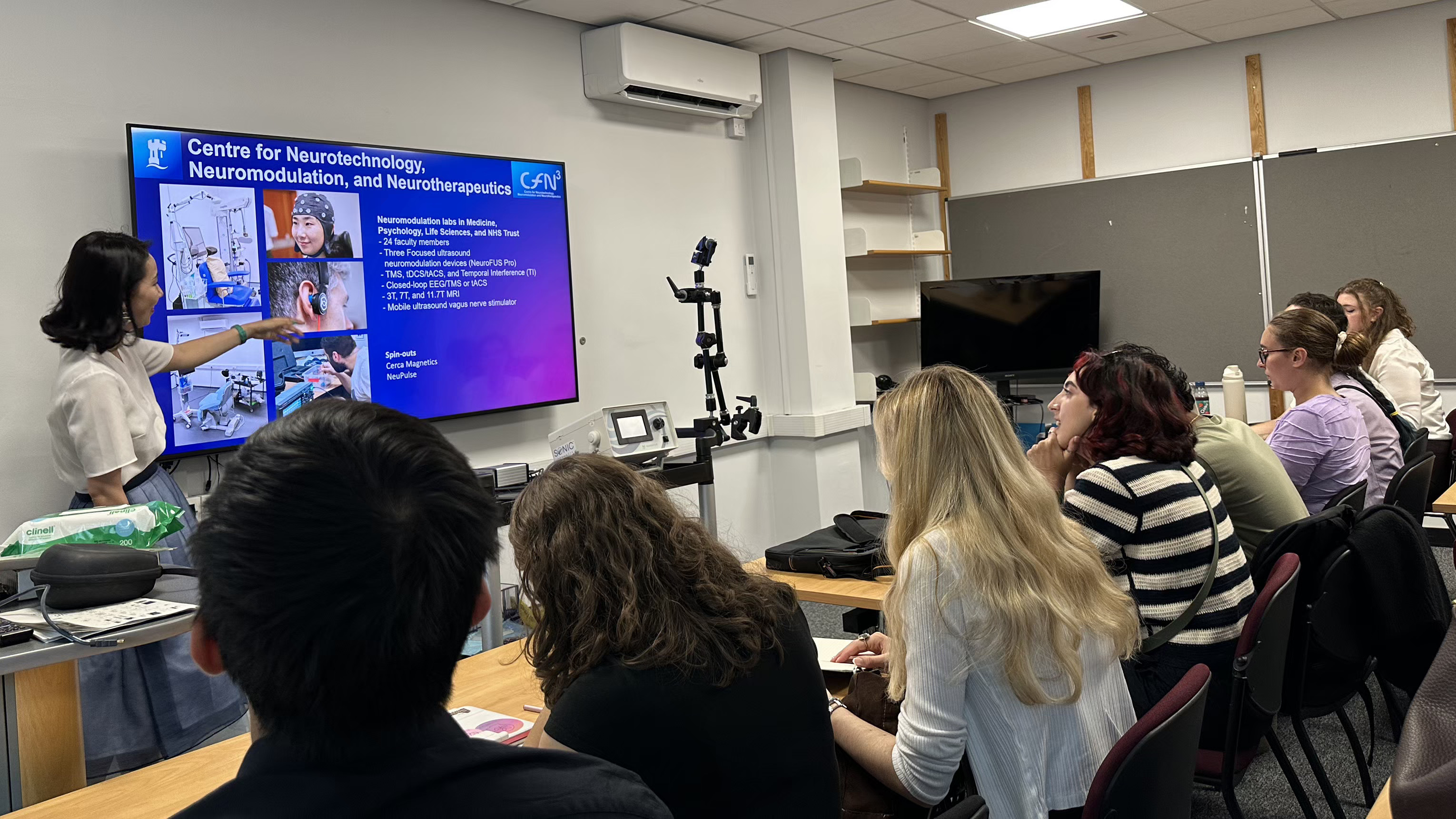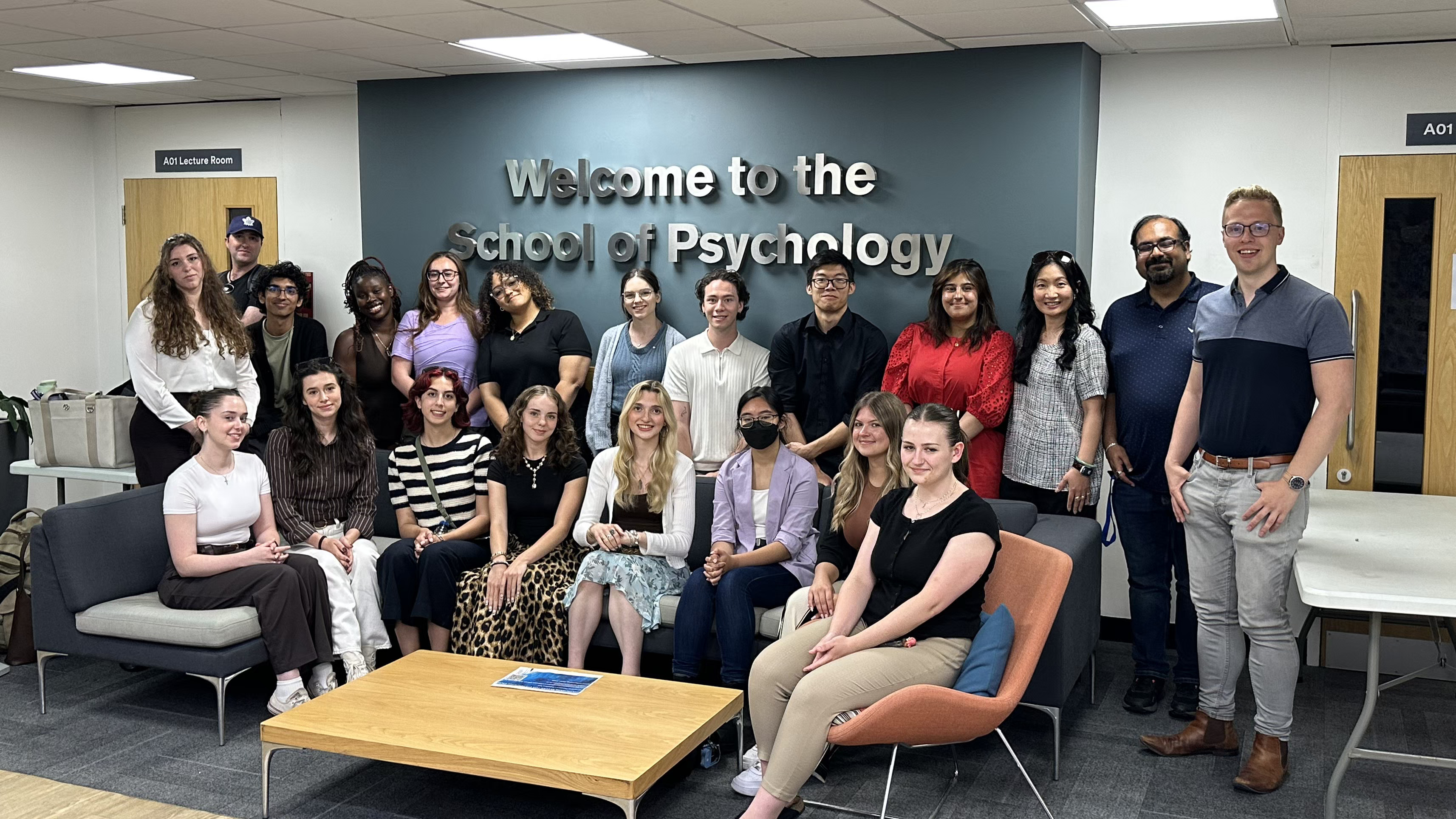Psychology student Sydney Lytwyn shares her insightful and thrilling experience abroad

University of Guelph-Humber students packed their bags and headed to the U.K. to learn about the intersection of technology and the study of the human brain.
Students participating in the Psychology field course, PSYC*3600 — Technology and the Brain: A Primer on Contemporary Neurotechnologies, visited Scotland and England for an enriching and immersive educational opportunity across the world.
Psychology student and founding president of Guelph-Humber’s Psychophysiological Association Sydney Lytwyn joined the trip and reflected on her journey:
Q: What initially interested you in taking a field course, and specifically, PSYC*3600 — Technology and the Brain: A Primer on Contemporary Neurotechnologies?
A: I’ve almost always been interested in the technological tools used within psychology/neuroscience. The progress that has been made with neurotechnology over decades and how each work on their own and with other technology can almost be incomprehensible for an undergraduate student. For me, this lack of understanding drove my desire to learn more about them, and this field course gave me the opportunity to feed that desire on a whole other level.
Q: What were your favourite parts of Scotland and England that you explored on this trip?
A: Edinburgh was very beautiful, and the City of Caves tour in Nottingham was incredibly insightful. Before psychology/neuroscience, I was very into history, so being able to tour Edinburgh felt like being in a movie at times because of how visually different it was from home. I was also told that some of the Harry Potter movies were filmed in Edinburgh!

Q: What were some of the biggest educational takeaways you got out of your visit to the universities and the society meeting?
A: One of the biggest takeaways for me was how reading aloud (and even more so, just preparing to read aloud) helps with memory retention in studying. It was a poster presentation at the Dundee meeting by Dr. Jonathan M. Fawcett. It discussed that preparing to speak and speaking aloud causes increased pupil dilation, which indicates an increase in cognitive effort, and thus results in greater memory encoding for those words. Dr. Fawcett, and other memory researchers, call this the pupillometric production effect. It’s very interesting and easily applicable to a study routine.
Q: What surprised you the most about the neurotechnology practices or research in the U.K.?
A: How prevalent it is there; I had no idea that Nottingham University was held in such high regard when it comes to neurotechnology. That became clear when we visited the university, and each lecturer had demonstration prepared with actual research and commercial grade neurotechnology tools (except MRI and MEG). It made me think about possibly studying abroad in the future.
Q: Apart from the educational aspect of the trip where you learned about neurotechnologies, what other benefits did you get out of it?
A: Learning how to travel and making new friends. I have never travelled abroad and had absolutely no clue what to expect; it was a little daunting at first. However, Dr. Alice Kim and Dr. Adam Sandford of the Guelph-Humber Psychology program (and Dr. Chris Madan from Nottingham) made travelling easy to understand and straightforward, and I couldn’t be more thankful. Making some new friends also made the rest of the trip that much more enjoyable and memorable!

Q: Did the course inspire any ideas for future research, innovation, or student initiatives you'd like to pursue?
A: It absolutely did. I had only ever heard of transcranial magnetic stimulation (TMS) and magnetoencephalography (MEG) through textbooks, and articles, but getting to hear first-hand from professionals how they work and what they can be used for (both now and in the future) was inspiring. I am specifically gaining more of an interest about research regarding the use of EEG machines with MEG technology, though that kind of pursuit is far into my future.
Q: How has this experience shaped the way you plan to lead Guelph-Humber’s Psychophysiological Association as its founding president?
A: I have so much more I want to discuss now. I never realized the broad potentials of EEG research and just how often it's used in tandem with other neurotechnologies, such as MEG and MRI. I was also inspired by the EEG talk at Nottingham by Dr. Domenica Veniero and had to ask her if it was possible to have her as a guest speaker for one of our meetings as her presentation was just so incredible. This experience also allowed me to talk to some of the other students about what they’re interested in regarding EEG work, and by doing so gave me ideas for future meetings and events.

